Nick McCabe on The Verve's studio battles, egos and tonal exploration
Guitarist revisits A Storm in Heaven and A Northern Soul
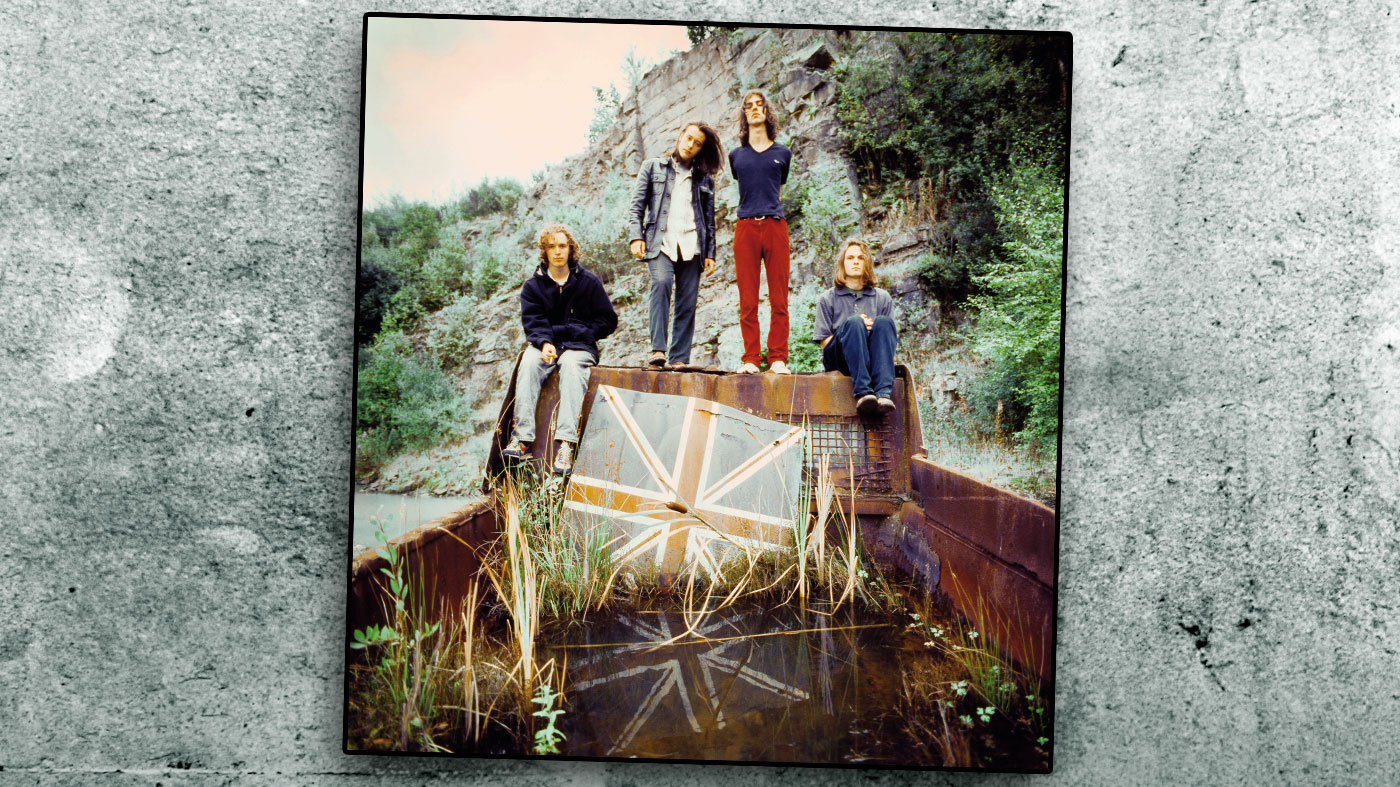
Introduction
As The Verve reissue their seminal first two albums, Nick McCabe breaks his silence on being the young creative maverick inside one of the great British bands of the 90s.
Although he’s kept his counsel on these albums for more than 20 years, Nick McCabe’s now happy to talk
There’s some bizarre notion that British rock in the 90s saw the return to ‘the band as a gang’. Y’know, four or five lads united together, taking on the world. But just as The Beatles and The Stones previously had their share of fallouts, so Blur, Oasis and Suede mixed mighty collaboration with regular (metaphorical, sometimes literal) punch-ups.
And it certainly happened with The Verve. It depends on who you ask, of course, but were The Verve a) the anthemic soul-rockers led by Richard Ashcroft? Or b) the weirdo guitar-splattering pyschedelicists built around mercurial guitarist Nick McCabe? They were both, you lucky people.
With that in mind, it’s a convenient time to reassess The Verve’s earlier days, thanks to the release of a super-lavish remastered three-CD reissues of their first two albums, A Storm In Heaven and A Northern Soul.
Both sets come with B-sides, outtakes, radio sessions, acoustic versions, live cuts and more. Although he’s kept his counsel on these albums for more than 20 years, Nick McCabe’s now happy to talk...
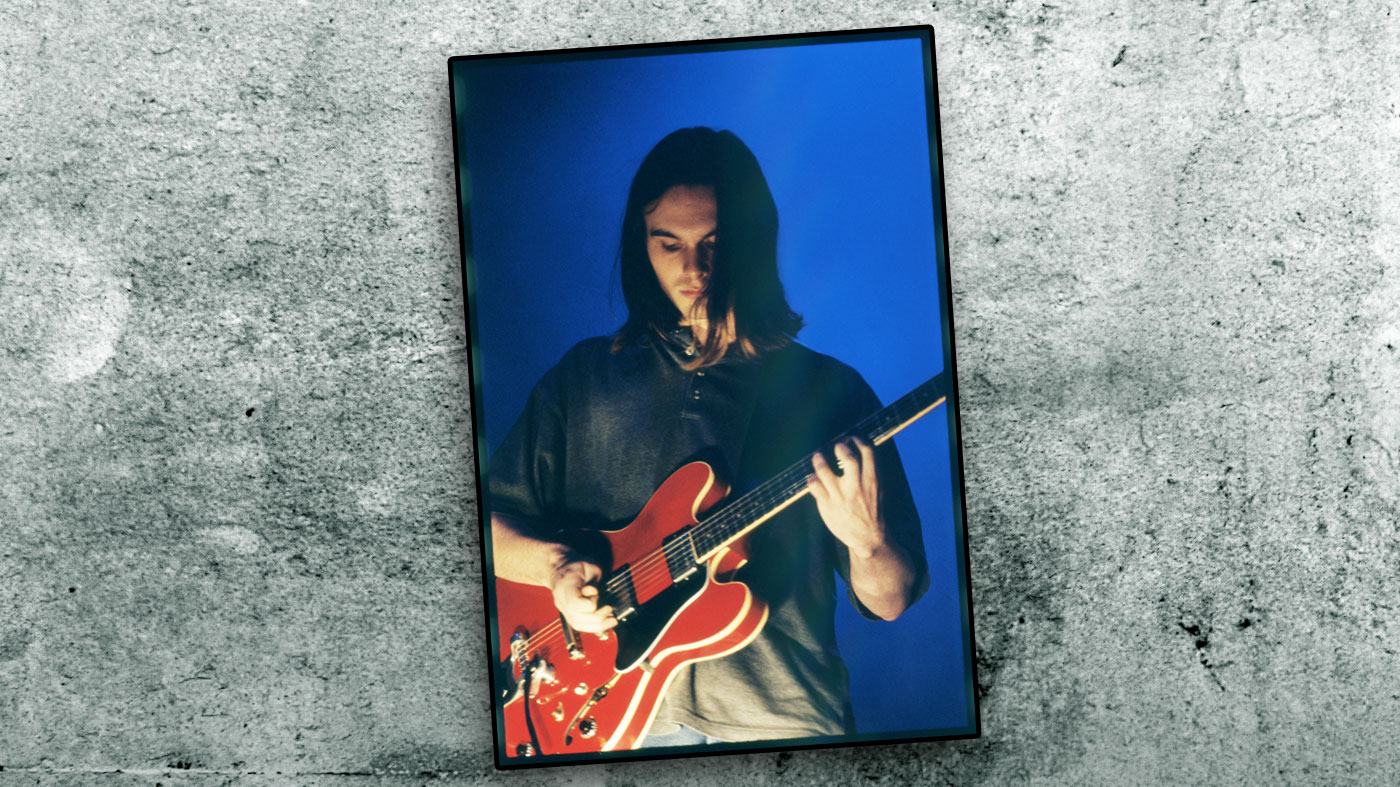
A goth in denial
“It takes an older man to recognise the quality of what you did when you were younger,” he reflects. “In past years, it was too recent for me to talk comfortably about it. Whereas now, it might as well be somebody else’s work - I can appreciate it on its own merits.”
I was onto Joy Division, Public Image Limited… People used to say I was a goth in denial, which probably had a bit of truth
The Verve coalesced at sixth form college in Wigan, all having played in various fledging bands. “We didn’t have the same influences,” remembers McCabe.
“I was a year older in school terms. They were pop kids. Richard was into Curiosity Killed The Cat when I met him! [laughs] They’d discovered the Stone Roses and the Mock Turtles, ‘Madchester’…
“To me, that was beginner’s stuff. I had two older brothers, see, and had heard Pink Floyd and Led Zeppelin already. I was onto Joy Division, Public Image Limited… People used to say I was a goth in denial, which probably had a bit of truth. The Madchester thing? I thought Happy Mondays were interesting, the Roses not so much. They were the scene’s Simon & Garfunkel as far as I could tell.”
The four nevertheless gelled, and landed a deal with Virgin Records offshoot, Hut. McCabe was - despite his skyscraping guitar - quiet and shy. Ashcroft was already a babbling pop star in his own head.
“Richard brought a pop sensibility,” notes McCabe. “So it shaped up to be what became The Verve. Richard was in his own movie. He would actually say, at times when he was concentrating, ‘I’m in my movie’! That’s a weird concept to most people... Isn’t it?”
First singles All In The Mind, She’s A Superstar and Gravity Grave failed to chart, but The Verve’s rep was building on freaky-sonic live shows. Time, then, for an album. What could go wrong?
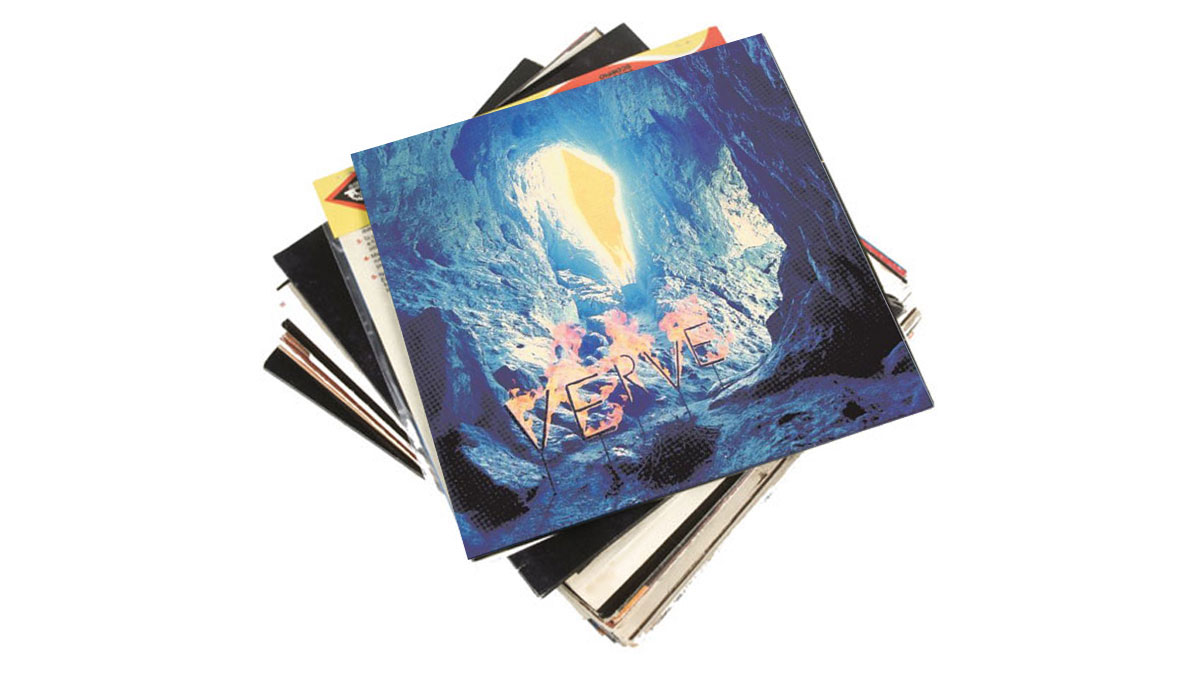
A Storm In Heaven
Just called ‘Verve’, the band turned out an “out-there” ultra-reverb’d druggy debut in 1993. After the three “failed” singles, they completely rewrote most of the material just before entering Cornwall’s Sawmills Studios.
At that age, you’re so busy developing that by the time you make another record you absolutely loathe the previous one
McCabe admits to being in a “strange” place: he was 20, his girlfriend was pregnant and he had arguments with mixing desk legend John Leckie - who had actually asked to produce the band - about recording his effects-laden guitar.
Producer John Leckie:
“To some extent, A Storm In Heaven is his record. When Nick was good, he was very good, but when he was bad he was very bad.”
Singles: Blue, Slide Away
Nick McCabe: “People forget about our age. There’s video of us recording at Sawmills on the DVD, and I was 20 when we recorded that. And when you’re that age, you’re so busy developing that by the time you make another record you absolutely loathe the previous one. So, I remember listening back to A Storm In Heaven when Urban Hymns came out and thinking it was an utter pile of shit. Strangely, I now think it’s aged quite well.”
A lot of it seems very free-form...
“Yeah, we’d gone in really prepared for those first singles, but that was their undoing... we were too prepared, and it ended up sterile compared to us live. The flipside, literally, was the B-sides, which were completely off the cuff.
“Yet they really worked. So before Sawmills, we decamped to Wales with a DAT, a mixing desk, and rewrote everything. We kept a couple of things, like Slide Away and The Sun, The Sea, but even they changed. They were much tighter earlier on but we allowed an improvisational element to come back in.
“All this improvisation got edited by memory. It was long before DAWs (Digital Audio Workstations). We developed some themes to ‘jump off from’ in the studio, and just leave the rest to the magic. We consciously did it. Engineers thought it was insane, but it was a strategy to not sound stale. All those cliches about synergy are completely true, to me.”
Would it be unfair on Richard to suggest that Verve back then were a jam-based threepiece with a vocalist placed on top?
To me, we were a post-rock band... that happened to have a singer. And a few years early
“You’ve hit the nail on the head, actually. Richard was absent, really, for a lot of the first two albums in terms of writing music. We’d go off and play and wait for his appearance. But what Richard is very good at - one of the many things he’s good at, I should say - is coming up with lyrics on the spot. And very good lyrics.
“The accepted wisdom of A Storm In Heaven is that the lyrics are gibberish and that Richard improved over the years. I think that’s not the case. His stream of consciousness stuff on A Storm In Heaven is spot on, for me.
“The lyrics were still getting written a week after we started mixing the music, though. It was hectic, with loads of angry phone calls from the label: ‘Where the fuck is this record?’”
The Verve were out of step with a lot of bands; you did get lumped in with ‘shoegaze’ to a degree, but you were miles from any notion of ‘Britpop’…
“Yeah, the shoegaze thing I thought was amazing - sound-wise - at the time. I still do! But then Smashing Pumpkins came along, and there were a lot of exciting things happening. Music was getting more experimental. By the time bands like Tortoise and the whole post-rock thing came out, I felt we’d sort of preempted that on some of A Storm In Heaven. To me, we were a post-rock band... that happened to have a singer. And a few years early.”
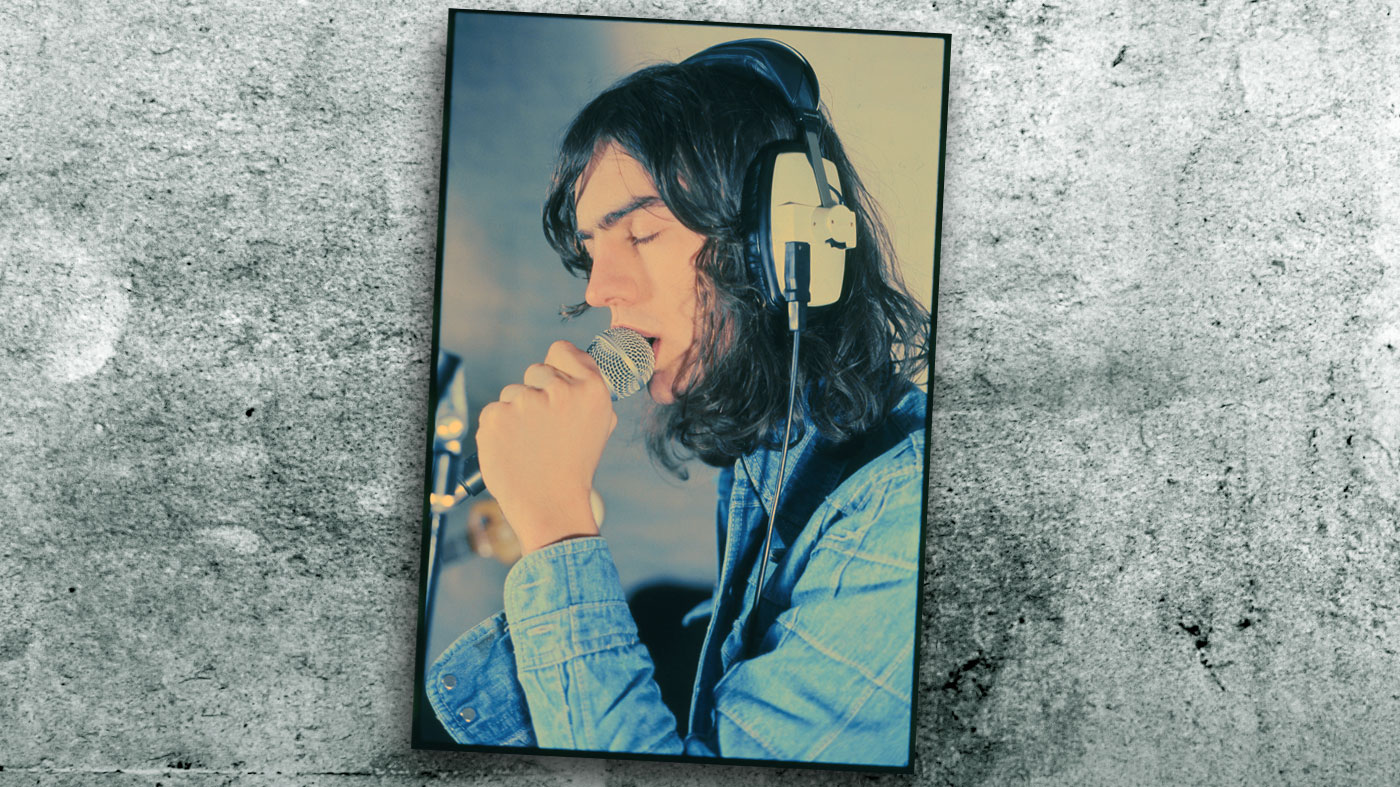
Multiple personalities
The contrast of personalities in The Verve was intriguing: Richard had this ‘Mad Richard’ rep and a near-Messianic persona as a frontman. You once had a review in The Times that read how you, “coaxed gorgeous,shimmering wedges of sound from his instrument while exuding all the enthusiasm of a man waiting for a bus”. Bit harsh?
I’m not playing f***in’ guitar poses. Being the star was [Richard’s] domain
“I did enjoy playing live! [laughs]. I just hate people throwing themselves around on stage when you know they’re not comfortable with it. It’s painful to watch. But yeah, I got flak. I’ve played gigs where fans were shouting ‘move, dammit!’ but I was just doing what I do. Playing guitar.
“I’m not playing fuckin’ guitar poses. Being the star was [Richard’s] domain. You don’t need the whole band doing that shit, really. If the singer’s doing it, the guitar player should, too? That’s just stupid. The music didn’t reflect it anyway. So, sorry everyone, I was busy doing stuff!”
John Leckie is a highly experienced producer. Even though he’d worked with some pretty unique bands, was he okay with your methodology?
“Well, I was a bit intractable in the studio, to be honest. Amps are always really important to me, more so than guitars, and I’d just got a Mesa/Boogie Mark III - cryptic amps at the best of times. It was all baffled off, hidden away, and John would start fiddling with it.
“It got to the point where John used to keep a Filofax with his own settings; he’d march in, and set it to: jazz funk tone #3, or whatever. I just became even more resistant. But John was also the one whacking the stereo master through Eventide reverbs multiple times anyway.
“I was glad we had John. It wasn’t so much into his work with The Stone Roses; I particularly like his albums for The Fall. To get what he did out of The Fall is pretty spectacular, really. He reined them in. I think that was key to me realising he’d work for us.”
Your effects were a massive part of the sound back then: are you like the Edge, who admits he’ll write whole songs based just upon a specific sound he’s found?
A Storm Of Heaven is essentially me discovering all this equipment
“Yeah, definitely. There are songs that come out just from a reverb patch on an [Alesis] Quadraverb. My gear didn’t change much on A Storm In Heaven and A Northern Soul. My playing changed, but I was mostly using the same gear.
“I was lucky. Around that time, everyone had gone digital and chucked all their pedals out. If I went to the magpie junk shop in St Helens, I found lots of analog delays and samplers and for 20 quid I had a new vista of exploration for the next couple of months. A Storm Of Heaven is essentially me discovering all this equipment. Get a few pedals, see what sounds I could make, wait for a tune to come out of it. Here’s the album!”
What ASIH tracks are you most proud of?
“Well, of all The Verve tracks, I’m least proud of those first singles [laughs]. But Blue was written in the studio. I had this guitar part, reversed it, and what I then played just came out there and then. And that was great.
“But I personally like Beautiful Mind, Make It Till Monday - I think the lyrics are brilliant on that. And Star Sail was a defining tune, in a way. It was something we’d struggled and struggled with… too clean, too precise. And one night, after too much wine, it just happened. It cleared the air between us and John Leckie. It was as if he allowed us to be what we were, and this is what could happen. It clicked.”
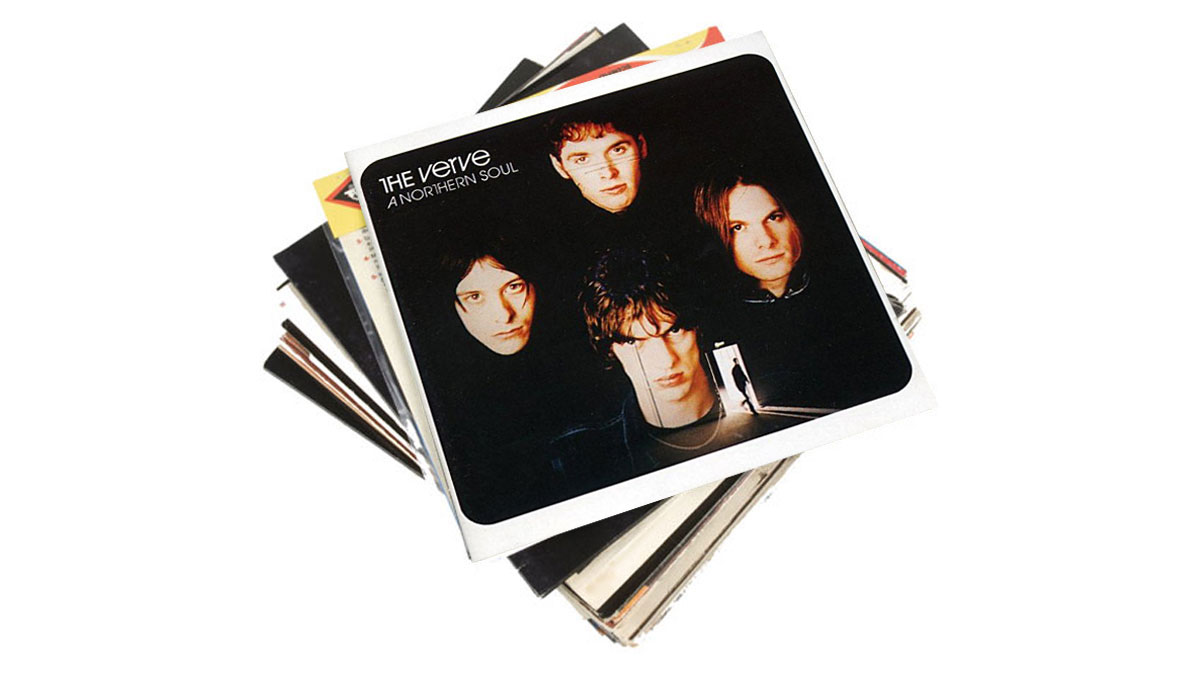
A Northern Soul
1995’s more taut follow-up had additional “songwriterly” Richard Ashcroft input (On Your Own, History) yet equally-notable volcanic guitar from McCabe on This Is Music, the Hendrixian Brainstorm Interlude and the title track.
Nick is the most gifted musician I’ve ever worked with... at the same time, he’s a complete and utter nightmare - Owen Morris
Noel Gallagher, of one-time-support band Oasis, said, “They’re the second best band in Britain, a bunch of space cadets led by Captain Rock. They’re all bonkers.” Recorded mostly live at Loco Studios in Wales. At the time, McCabe says the angst-ridden album “isn’t the Mississippi blues. I’m playing the St Helens blues.”
Storm clouds gather. Towards the end, Ashcroft fires McCabe and “splits up” The Verve. McCabe later rejoins, but doesn’t play on their biggest hit to date, History.
Producer Owen Morris:
“Nick is without a shadow of a doubt the most gifted musician I’ve ever worked with... at the same time, he’s a complete and utter nightmare.”
Singles: This Is Music, On Your Own, History
Nick McCabe: “I felt I had to rein in the excess. I’d learned more about contrast. I’d always been a Funkadelic fan, Eddie Hazel, but I was also listening to a lot of Richard Thompson, both Fairport Convention and his mid-70s records with Linda Thompson. I liked the fact the guitar on A Northern Soul wasn’t so treated, and had its own space. It felt like it was a piano in some senses.”
There’s plenty of effects on ANS, but less overdubbing and a huge guitar sound. Did Owen Morris’s work with Oasis affect that?
The demos were fierce. And by the record, we felt a bit intimidated ourselves by how distorted and angry they were
“From the first day he saw us at rehearsal, Owen said, ‘Yeah, let’s keep it real.’ Not in the flippant sense, but literally. Let’s just record what you’re doing. In the first few weeks, we achieved a fuck of a lot, most of the album... then it all went wrong. Not the music. The other stuff.
“Owen understood about getting that airborne vibration of a band in a room. A lot of the demos were fierce. I mean, really fierce. I’d changed to Marshalls. And by the record, we felt a bit intimidated ourselves by how distorted and angry they were. So This Is Music got a nip and tuck from the demo. But Owen made a real effort to capture ‘us’.”
Did you consciously change the way you played and wrote for A Northern Soul?
“By then, I realised that the stylistic trappings of what I was doing, what I was using, would be what dated it. A Northern Soul is, in many ways, getting back to the purity of the instrument… as bizarre as that sounds, coming from me.
“So I’m finding my voice on the first album, querying it on the second one. You want to move on constantly at that age. Last year’s work is ‘immature'! You go through that process again and again… until you get to middle age, essentially.”
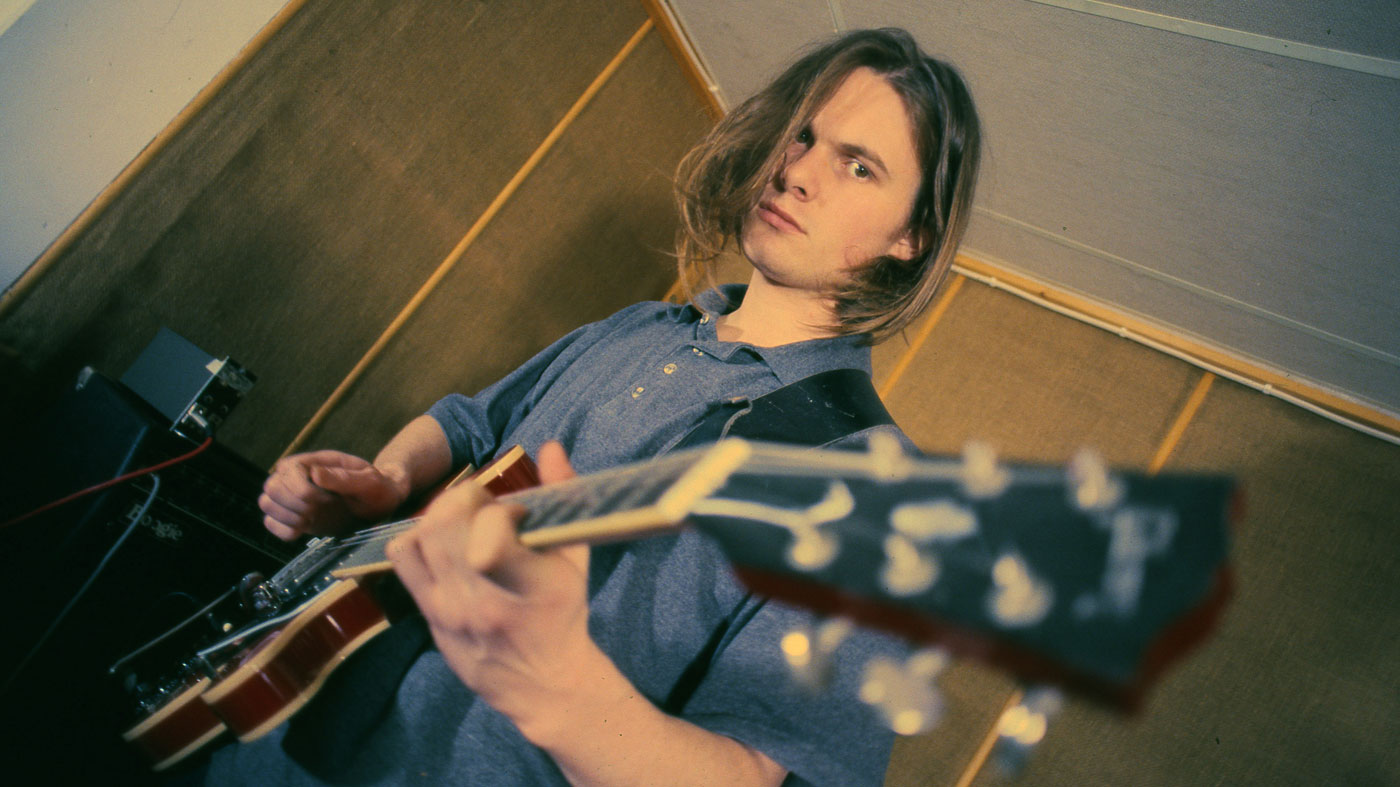
Sonic extremes
But you undoubtedly left yourself more space to play on the second album...
“I just tried to make it more appropriate. I maybe took too much onboard of what other people had said about A Storm In Heaven, that it was some sort of guitar ‘superswill’, or whatever. I just went; ‘Yeah, it is, isn’t it.’ I mean, that is what I was going for, but I tried to clarify my sonics more so people could understand...
I know Owen got irritated... but if I’d notated So It Goes and played it over and over, I’d have ruined it
“It tallied with other things I was listening to - Talk Talk’s Laughing Stock and Spirit Of Eden, their use of acoustic space was very different. A lot of other records around A Northern Soul were very compressed, very present. A Northern Soul is very smeared around the edges.”
There’s a quote from Owen Morris about working with you on A Northern Soul. He was full of praise yet also said “He’ll never play the same thing twice. Now you can ask Noel Gallagher to play the same guitar line a hundred times, and as long as there’s a good reason for him doing it, he’ll do it. But with Nick you’ve got no chance.” Your thoughts?
“Well, I don’t think that’s a mark of my eccentricity! That’s the correct thing to do, for me. I know Owen got irritated by the improvised bits at the end of So It Goes. But for every one of those songs that was changing all the time, there’s a This Is Music, which I never really changed.
“The thing is, If I’d notated So It Goes and played it over and over, I’d have ruined it. It’s a ragged piece, that’s what’s good about it. The more you play something, the more formalised it becomes, the more you kill it.”
It’s an album of sonic extremes: History is a long way from, say, Brainstorm Interlude…
“History is a sore point, obviously. It marks the point where I’d basically been written out of the band. But I still think it’s a great track. Brainstorm Interlude is a great piece of music, to me.
There were moments when it was just like riding a rocket
“It was 40 minutes distilled into six. Most of those 40 were absolute madness, some of the worst guitar playing you’ll hear in your life. But there were moments when it was just like riding a rocket.
“But that’s what I do like about guitar. When it’s blazing and you’re inside it, it’s the most exciting thing. But again, if you did that all the time, that itself again becomes formalised.”
There’s probably not a simple answer to this, but; what the hell is going on guitar-wise in the title track?
“That’s the Alesis Quadraverb. I found a sound on the Resonators setting, set it to an 11th chord and looped it. That’s the backbone. And then I just put other guitar on top, live.
“A lot of the guitar is DI’d actually. I was building up a vocabulary I thought I could use, y’know? If you’ve got an amp in a room, with the rest of the band, there’s a unity with the other instruments. Oppositely, if you separate it, electronically - like DI’ing the guitar - it instantly occupies its own space, I think.”
And the ANS tracks you are most proud of?
“Brainstorm Interlude, as I say. A New Decade still sounds great. A lot of those songs turned into straight-ahead rockers live, but on record they’re still a bit twisted. They’re different to play, now. Last time we played in 2008, I’d stopped telling Pete [Salisbury, drums] to slow down... which I was doing all the time on A Northern Soul. And I love both Stormy Clouds [the song with vocals, and the improvised guitar-instrumental reprise]. I like what we played on those.”
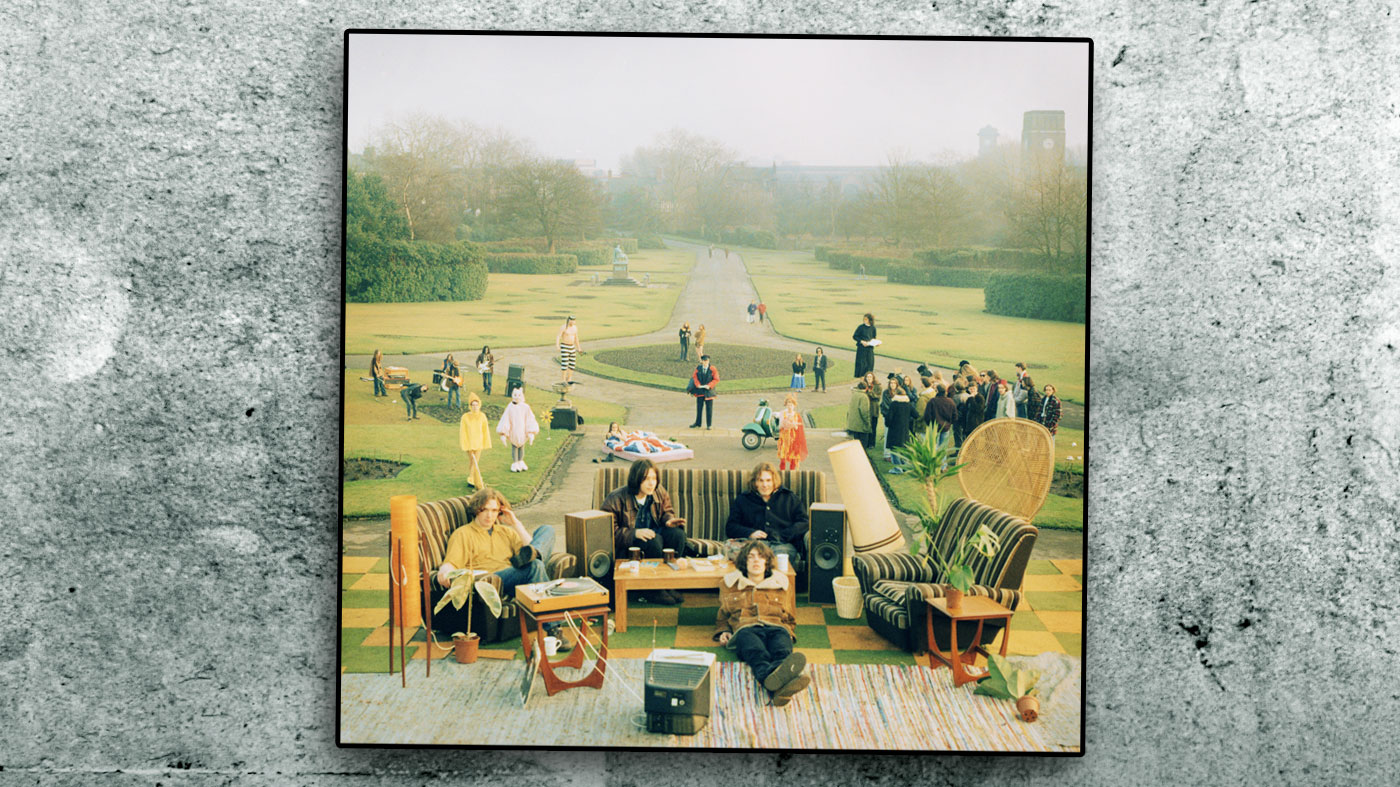
Space and time
McCabe made two more albums with The Verve, of course. The multi-platinum Urban Hymns (1997) and Forth (2008), though he says, “We were equals on the first two records. Equal royalties. We all lugged the kit. And that dynamic went after A Northern Soul.”
There’s an unreleased track called All Ways Are Maybes and it’s one the best things we ever did
Ashcroft recently declared The Verve “done and dusted”, while McCabe contributes to a melange of projects: his own band, Black Submarine, Czech duo Natalie Kocab and Michaela Poláková, albums with Calum Beattie and Shadow Party (with Devo’s Josh Hager and New Order’s Phil Cunningham) and a planned “four CDs’ worth” of his own unreleased archives: “The guitar’s in the vein of ‘Frippertronics’ [Robert Fripp’s layered looping technique].” He also lectures on Music Technology at Staffordshire University.
That said, a 20th anniversary edition of Urban Hymns is mooted. McCabe says, “There’s an unreleased track called All Ways Are Maybes and it’s one the best things we ever did” - but the inference is that it’s out of McCabe’s control. Looking back, he’s comfortable to simply say, “We just became two bands in the end.”
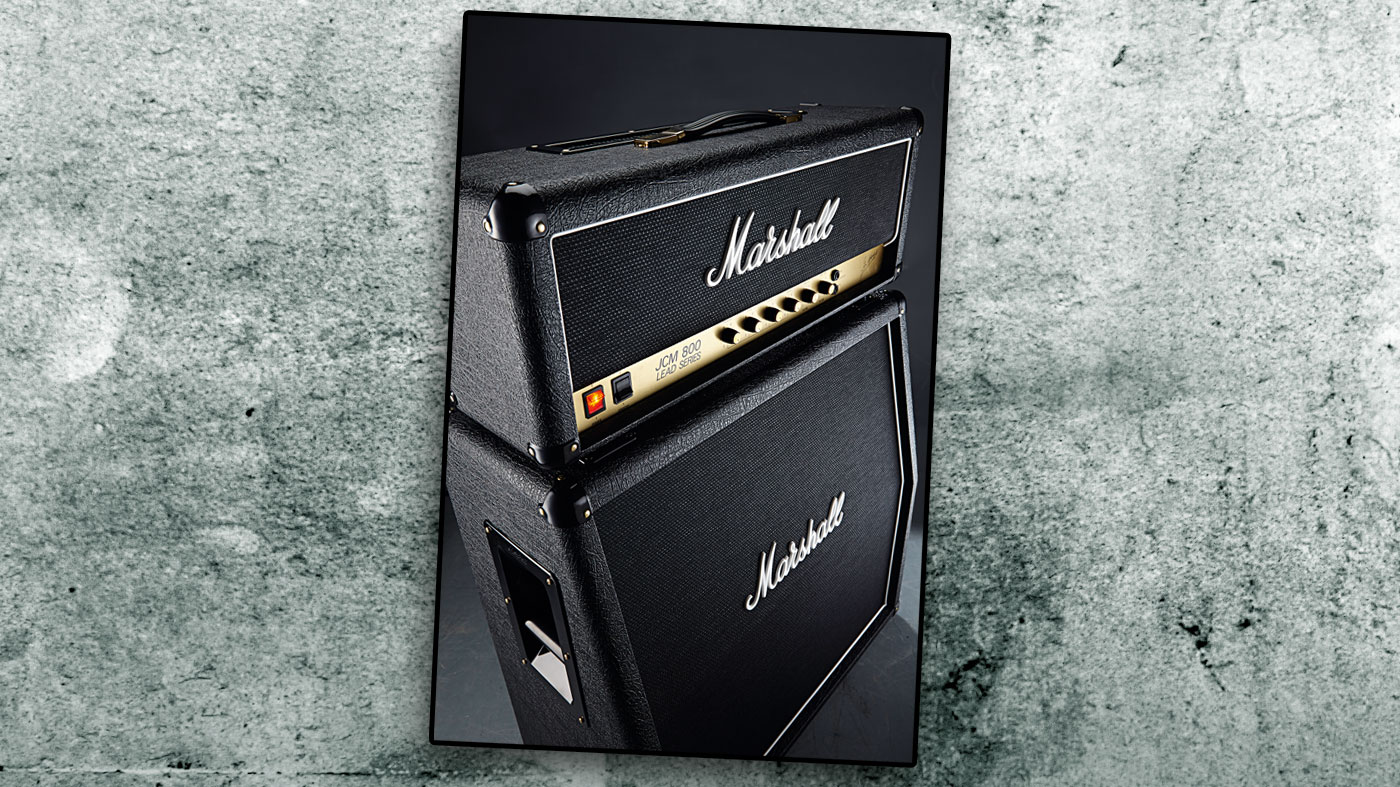
This is gear
The key studio tools Nick used in the 90s...
You’ll already know that Nick McCabe is no guitar purist; “An SM57 right on the speaker cone, which was very much the thing of that era, was the worst thing in the world to me,” he says of the early 90s.
I got to the point where my playing proficiency was enough for me. What I focussed on instead was expanding the palette
“I got to the point where my playing proficiency was enough for me, done with it. What I focussed on instead was expanding the palette.” Indeed, he’s not too fussed about guitars (stock, usually new) but his Mesa/ Boogie Mark III and Marshall JCM 800 were key to the first Verve albums. He bought his Marshall from a second-hand shop in Wigan that specialised in used prams and… amps!
The must-have, however, is an Alesis Quadraverb. The settings are far too complex to list, but the other gear on hand included an ES-335 that he used on A Storm In Heaven that was later destroyed, a Flying V, various Les Pauls and Strats, a Takamine 12-string, a Coral Sitar, Marshall, Fender, and Mesa/ Boogie amps, a weird PA head (“another pram shop purchase”), a Roland Space Echo, a Watkins Copicat and - trust us here - loads more… far too much to fit in!
The Deluxe Editions of A Storm In Heaven and A Northern Soul are out now on UMC

